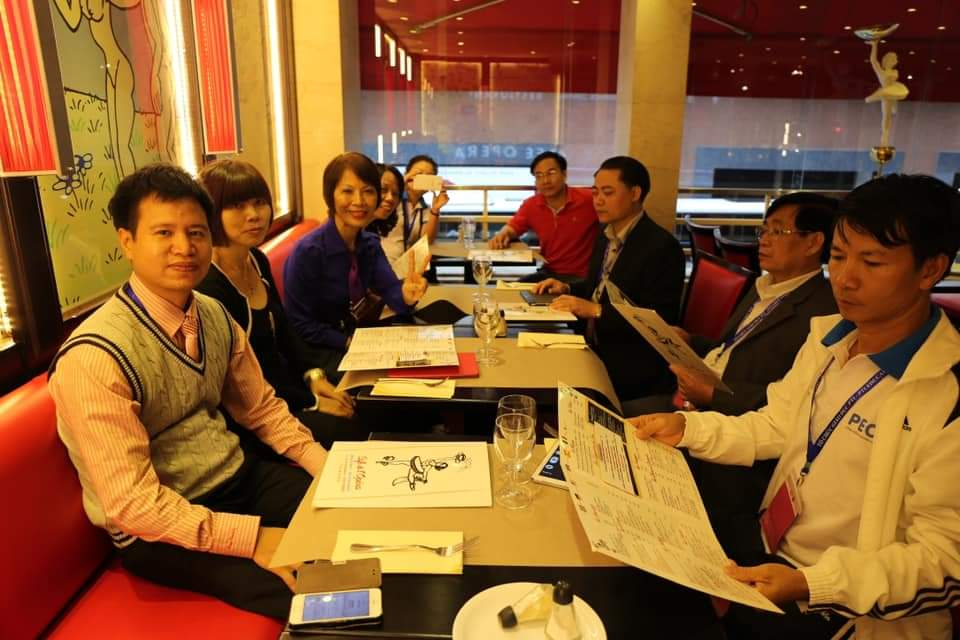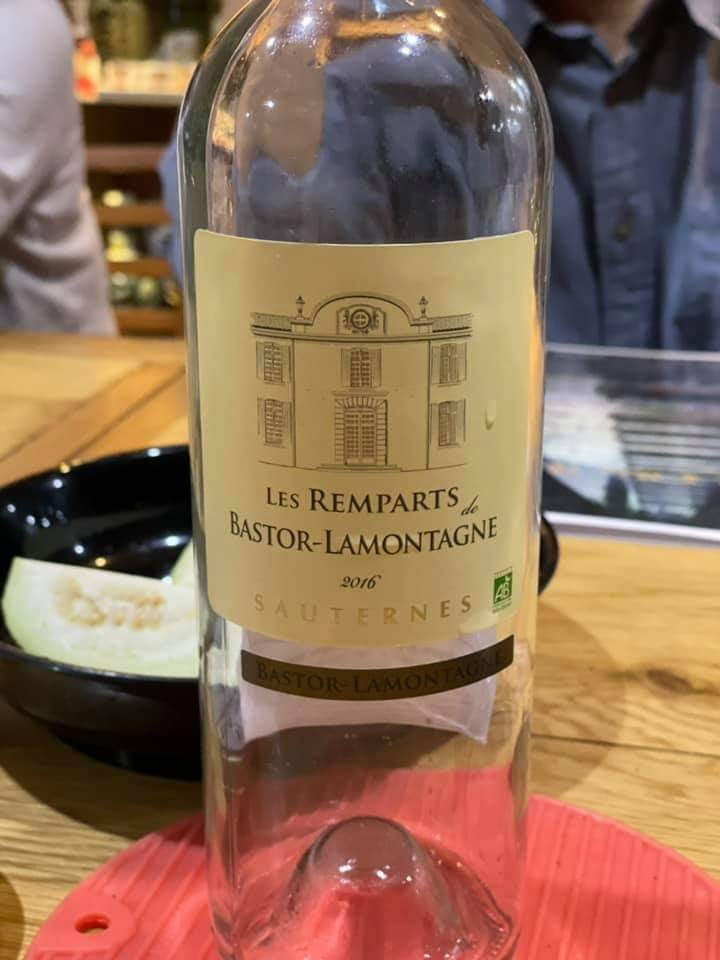The French have a gourmet tradition. Eating is a class expression of French culture.
Mr. Huu Ngoc wrote: The art of French cuisine has a long tradition. Some say it is from the time of Emperor Charlemagne. Rather, probably from the Renaissance (16th century). After centuries in castles & palaces, this art has been massified. In the early 19th century, food and drink entered French literature. Once a poet (Berchoux) wrote a hymn about dining art, a revolutionary justice administration official in 1789 left "Taste Physiology" - a work that was both concrete and funny, with many witty and profound thoughts about culinary philosophy such as:
"One can become a chef, but roasting requires innate talent."
"The dining table is the only place where I don't feel bored at first."
"The discovery of a new dish is more beneficial for human happiness than the discovery of a new star."
“It is a heresy that it is not necessary to exchange wine during a meal. The human tongue is easily saturated. For the 3rd wine, even the best wine can not be good as it is. "
We find that some of the above maxims highlight the social touch of food and drink, just as our ancestors say: good wine must have good friends.

The French kitchen is indeed rich and diverse. It is both an art and a science. France owns a number of great chefs who are world-famous artists.
A traditional French meal is set up as a classical symphony, consisting of five main acts:
The cold side dish: Hor d’oeuvre
Light dish: Entre’e
Main course (fish, meat with vegetables): Viande garnie.
Cheese: Fromage.
Dessert.
For a French family today, the play is simplified, leaving only three acts:
Stage 1: cold & light meal) - Stage 2 (main course), Stage 3: cheese and dessert.
During a day, the sequence of meals is as follows:
Breakfast at 7-8 pm: coffee, butter bread or croissants.
9am is a meal usually for students, workers, farmers: a piece of bread, a little sausage.
11-13h: Lunch (formerly a main meal), 3-4 dishes. Today, in the city, employees, students eat in cafeterias or restaurants near their workplaces.
16 to 17h: snacks: children eat bread, chocolate, adults visit each other and invite tea, slices of toast, small bread stuffed with meat.
19-20h: main meal of the day, including soup, main dishes such as eggs, fish, meat, vegetables, fruit desserts, cakes, ice cream, coffee or tea.

Wine-free meals are like a sunny day. Each type of wine is a work, the wine of each region has its own characteristic. When enjoying wine, we smell first, then sip, and avoid smoking.
Each dish must be consumed with the right wine.
For seafood, white wine is less sweet or foamy.
First dish: white wine or light red wine (Rose)
Chicken, duck, veal, pig: a deep red wine or a second unfermented Champagne.
Red meat like horse beef, lamb ... & cheese -a dark red wine.
Desserts -mildly sweet wine or Champagne.
There are a few rules when drinking wine: such as, a very delicious bottle must be kept the dust intact, and stay in the basket. Red wine from 15-18 degrees is poured into a tool with a wide flared mouth (Decanter), allowing the wine to "breathe" before drinking. Champagne should definitely be chilled in ice water.
During meals, wine shall be served in order from lighter to stronger & more fragrant. Cheese, like wine, is an indispensable element in the French meal. Having a dessert without cheese can be compared to a pretty girl with bad eyes. After eating the main course, before moving on to dessert, the hostess carried a cutting board on which there were various kinds of cheese, which depended on customers & waiters. Cheese is always served with the right taste of wine. In France, there are more than 400 different types of cheeses. General De Gaulle discussed the personal freedom of the French, saying: "It is very difficult to rule over a nation that uses a different cheese every day of the year".
Today, before the bustling pace of industrial society, the French dining art still does not step back from fast food. It still retains the traditional position in daily life, especially when receiving guests.
*****
I cannot forget the French teacher teaching the administration of European class 02 PTI with an expression that could not be sadder when referring to the people walking on the street while gnawing at Hamburger, she said: National destiny depends on how to eat and drink.
This is dedicated to Trinh Duc, for the good wine you served!
